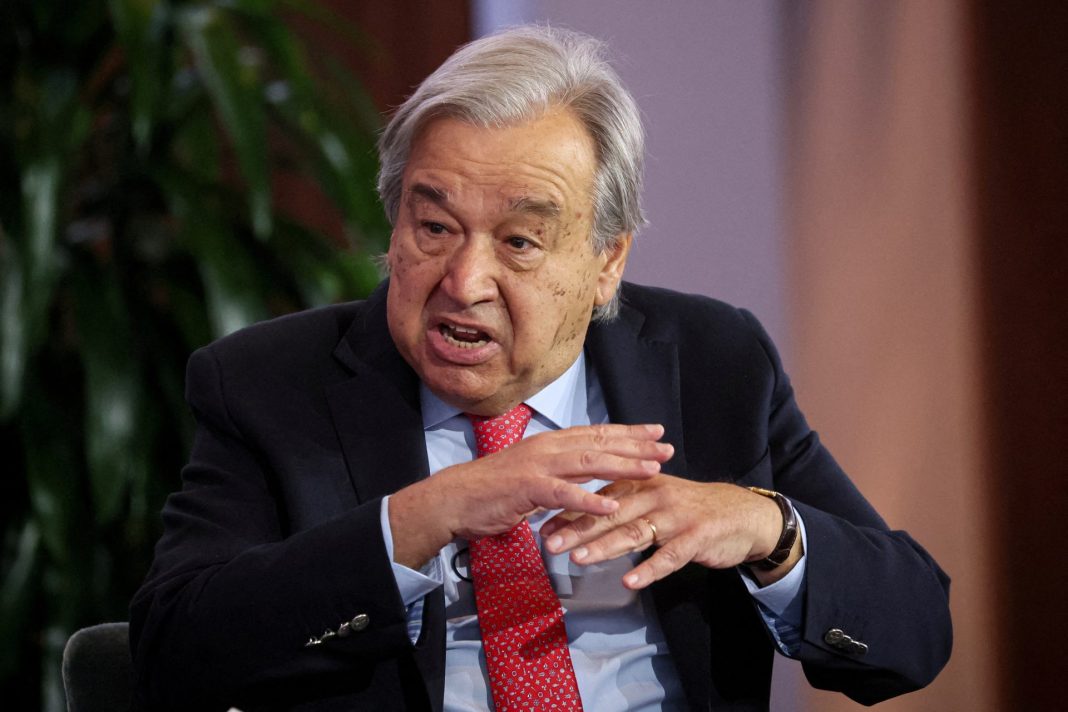UN peacekeepers are working to calm the situation and prevent “miscalculation” after both sides heightened their rhetoric and raised the possibility of full-scale conflict, he said on Friday.
“One rash move – one miscalculation – could trigger a catastrophe that goes far beyond the border and, frankly, beyond imagination,” Guterres told reporters.
“Let’s be clear: The people of the region and the people of the world cannot afford Lebanon to become another Gaza.”
A UN peacekeeping force UNIFIL, as well as unarmed technical observers known as UNTSO, have long been stationed in southern Lebanon to monitor hostilities along the demarcation line between Lebanon and Israel, known as the Blue Line.
“UN peacekeepers are on the ground working to de-escalate tensions and help prevent miscalculation,” Guterres continued, adding, “The world must say loudly and clearly: immediate de-escalation is not only possible – it is essential. There is no military solution.”
Hezbollah has fired rockets and drones into Israel since it launched the war on Gaza last October with the Israelis responding with deadly air strikes and heavy artillery fire. Hundreds have been killed and tens of thousands displaced along the border.
Israeli Prime Minister Benjamin Netanyahu and Defence Minister Yoav Gallant have previously pledged to “turn Beirut into Gaza”. This week, Hezbollah leader Seyyed Hassan Nasrallah warned of “no restraint and no rules” if Israel launches a major attack on Lebanon.
Hezbollah has indicated it is not seeking a wider conflict, even as it has steadily drawn on more potent weaponry.
The group has thousands of fighters, many with experience in the Syrian war, and an arsenal of tens of thousands of missiles capable of hitting cities all over Israel. It also has a large fleet of drones, one of which appears to have carried out an extended flight over the port city of Haifa this week.
There are fears a wider escalation could overwhelm Israel’s Iron Dome missile defence system, which has so far intercepted most of the hundreds of missiles fired by Hezbollah.
Israel has had bruising experiences in Lebanon in the past. After its forces invaded in 1982, they were stuck holding a buffer zone for nearly two decades after a war that saw the birth of Hezbollah. There was a second 34-day war in 2006 that bloodied both sides.
But the political pressure on Netanyahu has swelled with no indication of when life will return to normal more than eight months after the beginning of the conflict.
Dozens of towns in the occupied territories are deserted with about 60,000 people evacuated to temporary accommodation, leaving empty streets with the occasional building scarred by rocket fire. Some 90,000 have also fled southern Lebanon.
